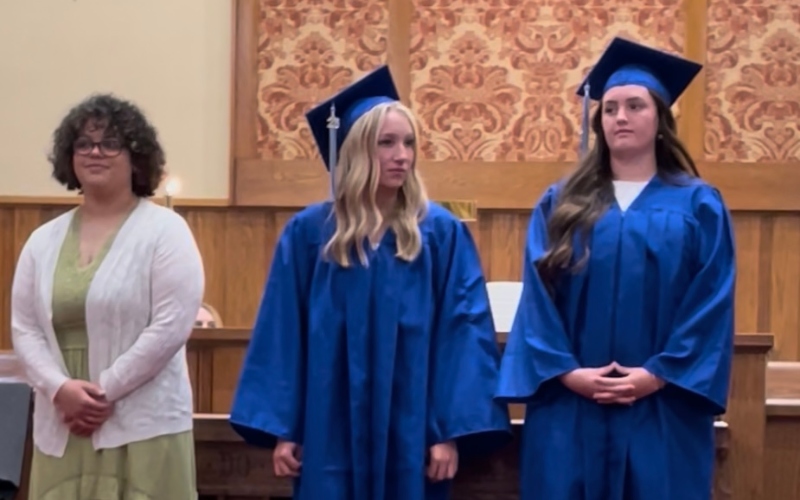The kayaks will never lose color
Published 11:03 am Friday, September 20, 2024
|
Getting your Trinity Audio player ready...
|
On Monday, I went up Melrose Mountain and visited a swimming lake I’d hung out at one summer about ten years ago. It was cold up there, and the wind was blowing. I was in jeans and a crewneck, and the last time I’d seen this place, it was vibrant and balmy outside.
I stood on the dock and stared into the cold, tranquil water.
In the summer of 2015, I stood on that dock in the breezy summer sun, right beside my best friend and a handful of our youth group crowd. We had gathered there to play around and swim before the entire church showed up for the baptism that would take place in the lake later that day.
The kayaks were colorful; the way I remember it, they weren’t faded by the sun quite yet. The sand was powdery, and the lake water wasn’t warm, but it wasn’t freezing, and it was sloshing around from all the activity.
I got baptized in that lake that August day. I’d spent an entire afternoon there with a boy who, only a few years later, died in a car accident. This place was his home. This mountain is where he lived. I could see the light to his gated community from my house in a Landrum field.
And then, one August day in 2021, he was…gone. Just like that.
I’ll spare my readers the details of how his death seemed to be the catalyst of a very significant period in my life, when I started writing poetry and started counting on my hand the number of youth group kids who had died.
“He was one of us,” I had thought. “He was one of my generation’s own.”
The entire thing, like a little razor blade, had peeled up a new term in my brain: “When one of your own dies: expression. A moment in which a person of similar age to the victim of death is trapped in a temporary phase of disbelief. The emotion comes and goes, often suddenly or when exposed to a scene that unfurls an old memory.”
I expected to feel that way three years later as I stood on the empty lakefront beach on Monday.
The kayaks had, after all, faded. The water was still. The air was cold. All my friends had gone. Of the four I was closest with that one summer day, two were no longer alive.
But on the cold beach, I discovered that I didn’t feel the sad emotion peeling up at the edges. It turned out that maybe I had just about learned to see those old summer scenes from childhood and smile at the distance between now and then.
I still often think about the sadness following that summer and those young deaths. And now, I can look at it and remember the good about them instead of thinking about the sad.
There will be more warm days at the lake. And I’ll never stop remembering the good about it or how colorful the kayaks had once been.
“Growing pains: The difficulties experienced in the early stages of youth.”






